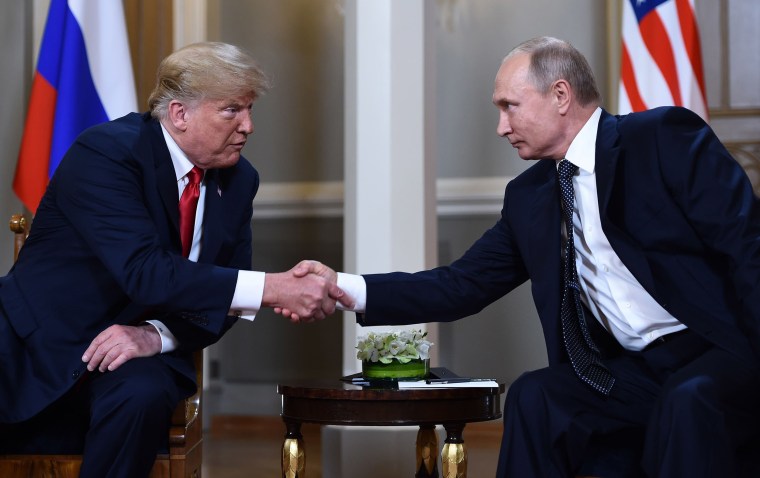After the collapse of the Soviet Union, the United States and its partners forged an international agreement called the Open Skies Treaty. The policy was relatively straightforward: in the interest of peace and stability, participants to the treaty -- most notably, the United States and Russia -- had the authority to conduct unarmed surveillance flights over each other's countries.
The transparency mattered, not just in terms of arms capabilities, but also with regard to military activities and troop movements. Nevertheless, to Moscow's delight, Donald Trump announced in May that he intended to withdraw from the international agreement.
Yesterday, as Rachel explained on last night's show, the outgoing Republican president made it official. The Wall Street Journal reported:
The Trump administration formally shut the door on the Open Skies treaty Sunday, exiting the agreement while moving to get rid of the U.S. Air Force planes that have been used to carry out the nearly three-decade-old accord.
Before anyone assumes that President-elect Joe Biden will simply try to re-enter the international agreement, it's worth emphasizing why that won't be an option: the Trump administration, the WSJ article added, is "taking steps to dispose of the two specially equipped OC-135B planes the U.S. has used to carry out Open Skies flights."
One official explained, "We've started liquidating the equipment."
There's no evidence Trump tried to negotiate a new version of the agreement, and his administration decided over the summer not to buy newer planes to replace the OC-135Bs.
But as striking as developments like these are -- overshadowed by Trump's efforts to overturn an election he lost -- they do fit into a larger pattern.
Indeed, one of the most striking aspects of the outgoing president's foreign policy legacy -- I'm using the word loosely -- is the frequency with which he's abandoned international agreements, many of which served the United States' vital interests, some of which enjoyed bipartisan support for many years.
Trump also, for example, withdrew last year from a nuclear arms control treaty with Russia called the Intermediate-Range Nuclear Forces treaty. The INF treaty was largely uncontroversial for decades, but the Republican president abandoned it anyway.
He took a similar approach to the international nuclear agreement with Iran. And the Paris climate accord. And the Trans-Pacific Partnership, which he'd vowed to renegotiate, and then promptly forgot about.
Trump has also abandoned the World Health Organization. And the United Nations Human Rights Council. And the United National Relief and Works Agency (UNRWA).
Most modern American presidents point to forged international partnerships as evidence of global leadership; Trump points to his abandonment of international agreements as evidence of his disinterest in global leadership.
Some voters probably thought having a former real-estate developer in the Oval Office would mean having a president who's good at building things. But if there's one thing that's become painfully clear over his failed term, Trump is actually a world-class demolitions expert.

